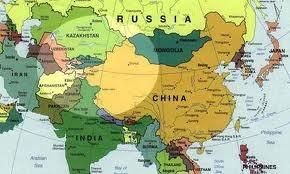BISHKEK (TCA) — The demand for finance for major infrastructure and development projects in Asia and the Pacific shows no sign of slowing as regional economies seek ways to address moderating economic growth, inequality, and significant environmental risks, says the Asian Development Bank (ADB)’s 2015 Annual Report (2015 AR), released on April 22.
The latest annual report shows that total operations surged to $27.17 billion in 2015—the highest in ADB’s history. The total included $16.29 billion in approvals for loans and grants, $141 million for technical assistance, and $10.74 billion for cofinancing, which increased by a record 16%. Disbursements, a key factor in improving aid effectiveness, also hit a new record of $12.22 billion in 2015, an increase of 22% over the previous year.
Private sector operations, a major focus of ADB’s long-term strategy for boosting growth in the region, jumped to $2.63 billion from $1.92 billion in 2014.
“Our record performance in 2015 reflects a growing demand from the Asia and Pacific region for ADB’s development assistance,” said ADB President Takehiko Nakao in his 2015 AR message. “Poverty persists despite the region’s impressive growth, and infrastructure and other development needs are monumental.”
ADB estimates that the region needs about $800 billion for infrastructure investments annually, amounting to about 6% of gross domestic product, compared with current investments of about 2%-3% in many countries in Asia and the Pacific. The funding deficit is a key cause of constraints on economic growth and poverty reduction in the region.
In September, ADB became the first multilateral development bank to commit to a sizeable climate finance target by announcing it would double its annual climate financing to $6 billion by 2020. Tackling climate change is critical in Asia and the Pacific, where rising sea levels, melting glaciers, and weather extremes like floods and droughts are increasingly costing jobs and lives.



